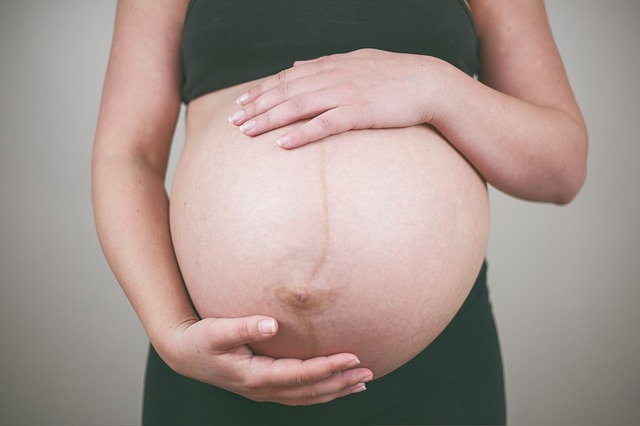One of the thrilling landmarks of your pregnancy is the first time when you feel little sensations of your baby’s movement inside the womb. This is a great feeling and can’t be put in words. It is one of the indications that the baby is alive and growing well. The first-time moms would start to experience these movement from 18 to 22 weeks, whereas if you are second time mom, then you can experience it soon as 14 or 16 weeks. A mom who feels such movement frequently can be in a shock state when suddenly the baby stops to move. This article will tell you more about this issue and ways to deal with it.
How does the movement of a baby feel in the womb?
The development of growth of the baby determines the kind of his movements you can feel inside your body. Also, the nature of the infant is also responsible for the movement. It has been seen that the infant who are active produces frequent body movements than the ones who are not.
It can feel like fluttering, rolling, tumbling, jabbing, kicking, elbowing or swishing sensation in the womb. With the progression of pregnancy, these movements get frequent, and distinct. As the baby gets stronger and bigger, the intensity of these sensations can increase. It can cause even hurt your ribs.
What factors are responsible for the movement of the baby?
There are several things that should be taken into account when determining the movement of a baby. These things can be change in the position of the baby, maternal activity, sleep-wake cycles, location of placenta, and a few other factors. By the 3rd trimester, a lot of babies do not move around a lot that they used to do earlier.
This is because in the early stages a baby was small and enough room was there in the stomach. When he grows big, he occupies more space in the womb leaving behind lesser space for him to move. This reduces his movement. However small, but the movements will still be noticeable and felt.
Another cause for reduced movement can be when the baby doesn’t get required nutrition or oxygen from the placenta. Both these factors need to be addressed. The problem can arise if you do not feel any baby’s movement for continuous three days. That is when you need help of your doctor.
Try positions when there is high chance of feeling baby’s movements
A woman is very likely to perceive movement from her baby at the time of lying down. This is the best time to experience movements. Fewer movements are observed when in sitting position and least movement is noticed in standing position.
Try the counting method
Often women have this question of what to do if baby stops moving. Kick method is one of the good ways to put your fears to rest. Lie on the left side with the bump of your baby touching the floor. Ensure it is supported with any pillow to prevent any discomfort. Now focus for 2 hours on sensations that you experience inside your body.
This method will help you track the baby’s movement. Start to count the baby’s kicks from 28th week. Sit quietly, and note when you feel any movement in your baby. On an average, babies need to move ten or more times in three hours. If you fail to notice 10 counts, then you need to seek medical intervention. Though the movement of the baby in the womb can increase or decrease, but sudden reduction in the activity levels needs to be checked by a doctor. It will give you mental peace.
Your midwife or doctor will check the movements and heart rate of the baby. If they find it essential, they may even send you to a hospital for supervision or treatment. Depending on your condition, they may advise you to get a fetal arousal tests (that measures any vibrations or noise produced by the baby), ultrasound, to check your baby’s health. Less than optimum movement shows that the baby isn’t able to get enough nutrition or oxygen via the placenta. A majority of these cases are managed, and treated medically.
Also read: How to Prevent Stretch Marks During Pregnancy
Conclusion
Fetal movements in your womb is considered to be a sign that your baby is in good health. However, if your body stops or reduces his movement for several days, then it shows a medical issue. You need to pay close attention to the movement of your unborn infant. If you see any changes or irregularities in the movement, you need to inform it to your doctor.

